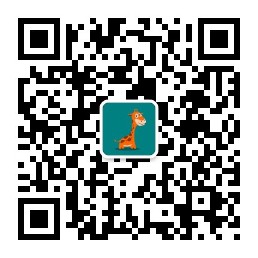第494期:伍子胥和屈原又打起来了
今天是端午节,祝大家节日开心,好吃好喝好好休息。今天大概你会在很多网站看到跟端午节有关的内容,你抽空尝尝佛老的吧。
先讲一个佛老的故事。佛老上高二时,偶然接触了一种英语学习方法“双向式英语”(Two-Way Communication),作者是台湾人,叫扶忠汉。当年中国青年报连续几天整版报道他和这套英语学习法。于是佛老就和一个同班同学一起去校外的一个英语辅导班报了名去学这套教材。那个培训班大概两个月,学完了第一册。这套教材怎么样?站在今天的视角看,我仍然觉得这是一套非常优秀的学习教程,是启动我对英语产生浓厚兴趣的第一个触点。可惜后来就没人知道双向式英语和扶忠汉了,今天即便你google,也搜不到什么了。
这套教材第一册中有篇课文讲religious beliefs,其中提到端午节和粽子的来历。那段英文老师要求背下来,我就背下来了,结果至今都没有忘记。后来我在工作中跟外国同事谈到端午节时,这段英文就脱口而出幸运流水一般想都不用想。
这段英文是这样的:
The dragon Boat Day is in memory of Chiuyuan, a poet and hermit in the kingdom of Chu during the Warring States period.
Why do we eat sticky rice wrapped up in bamboo leaves on Dragon Boat Day?
It’s a long story. To make a long story short, people didn’t want any fish to eat Chiuyuan’s corpse after he jumped into a river to commit suicide, so they cooked a lot of sticky rice to feed the fish in the river.
Why did he commit suicide?
Because he couldn’t do anything when his country was at the point of crisis. The king didn’t accept his sincere advice.
这也是绝大多数中国人对端午节和粽子的理解。
每年端午必有屈原和伍子胥之争,每年中秋都有五仁和枣泥之争,每年元宵都有甜咸之争。咱们还真喜欢争。
简单说,端午节历来有两个说法,各有拥趸,谁也说服不了谁。佛老倾向于伍子胥说:
农历五月初五往江中投粽子早在屈原出生前100多年就有了,不是汨罗江,而是钱塘江。
故事太长,to cut a long story short, 伍子胥被投钱塘江是公元前484年,屈原自投汨罗江是公元前278年。伍子胥死后141年屈原出生,都是楚国人(九头鸟果然不好惹)。伍子胥为报杀父之仇跑到吴国,助吴国打败了楚国。伍子胥入楚国都城鞭尸死去的楚王,大仇得报。老吴王被越王勾践所杀后,伍子胥位列辅政大臣辅佐吴王夫差。后来吴越战争中勾践投降。伍子胥建议应该联和齐国一举灭掉越国。夫差不允,并赐剑要伍子胥自杀。伍子胥因此含恨而亡。后来勾践忍辱负重东山再起又灭了吴国,就是成语“卧薪尝胆”的来历。
伍子胥临时前说“把我的眼珠子挖下来挂在苏州城门上。我要看到吴国亡国的那一天。“
我总觉得屈原是伍子胥转世投胎……但这个人的性格确实强悍。鞭尸楚王、挖眼珠诅咒吴国亡国。
由于伍子胥这个人太暴力,历代帝王和儒家都不喜欢他,也不想宣传他的这种行为(怕百姓模仿)。屈原就不一样了,又有才,又符合儒家思想的道德规范——不得志也不反抗不叛国,发完牢骚自杀以报君恩。
端午节和粽子跟屈原联系在一起是中国封建文化和帝制思想对历史传统的一次合谋篡改。我叹那伍子胥,更叹那三闾大夫。
按今天的传统习俗来看,江南流行肉粽、蛋黄棕,以嘉兴为中心,是伍子胥派粽子的大本营(苏州、嘉兴这两个城市都是伍子胥建立的)。除江南之外的大部分地方的粽子以江米小枣为主,吃粽子时还流行蘸白糖(否则没味道),是屈原派。
这个故事很多人都知道,但怎么用英语表达呢?网上有很多种说法,下面选用了两端比较简洁和完整的内容,供你参考。
Qu Yuan
The story best known in modern China holds that the festival commemorates the death of the poet and minister Qu Yuan (c. 340–278 BC) of the ancient state of Chu during the Warring States period of the Zhou Dynasty. A cadet member of the Chu royal house, Qu served in high offices. However, when the king decided to ally with the increasingly powerful state of Qin, Qu was banished for opposing the alliance and even accused of treason. During his exile, Qu Yuan wrote a great deal of poetry. Twenty-eight years later, Qin captured Ying, the Chu capital. In despair, Qu Yuan committed suicide by drowning himself in the Miluo River.
It is said that the local people, who admired him, raced out in their boats to save him, or at least retrieve his body. This is said to have been the origin of dragon boat races. When his body could not be found, they dropped balls of sticky rice into the river so that the fish would eat them instead of Qu Yuan’s body. This is said to be the origin of zongzi.
Wu Zixu
Despite the modern popularity of the Qu Yuan origin theory, in the former territory of the Kingdom of Wu, the festival commemorated Wu Zixu (died 484 BC), the Premier of Wu. Xi Shi, a beautiful woman sent by King Goujian of the state of Yue, was much loved by King Fuchai of Wu. Wu Zixu, seeing the dangerous plot of Goujian, warned Fuchai, who became angry at this remark. Wu Zixu was forced to commit suicide by Fuchai, with his body thrown into the river on the fifth day of the fifth month. After his death, in places such as Suzhou, Wu Zixu is remembered during the Duanwu Festival.
Zongzi
Zongzi is a traditional Chinese rice dish made of glutinous rice stuffed with different fillings and wrapped in bamboo leaves, generally of the species Indocalamus tessellatus, sometimes, with reed leaves, or other large flat leaves. They are cooked by steaming or boiling. In the Western world, they are also known as rice dumplings or sticky rice dumplings.
今天就讲到这里吧。感谢你的阅读,明天见。




